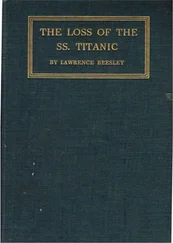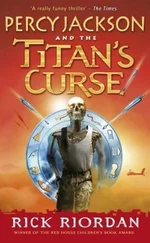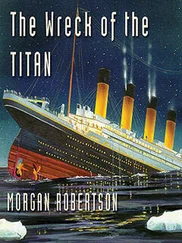Theodore Dreiser - The Titan
Здесь есть возможность читать онлайн «Theodore Dreiser - The Titan» весь текст электронной книги совершенно бесплатно (целиком полную версию без сокращений). В некоторых случаях можно слушать аудио, скачать через торрент в формате fb2 и присутствует краткое содержание. Жанр: Классическая проза, на английском языке. Описание произведения, (предисловие) а так же отзывы посетителей доступны на портале библиотеки ЛибКат.
- Название:The Titan
- Автор:
- Жанр:
- Год:неизвестен
- ISBN:нет данных
- Рейтинг книги:5 / 5. Голосов: 1
-
Избранное:Добавить в избранное
- Отзывы:
-
Ваша оценка:
- 100
- 1
- 2
- 3
- 4
- 5
The Titan: краткое содержание, описание и аннотация
Предлагаем к чтению аннотацию, описание, краткое содержание или предисловие (зависит от того, что написал сам автор книги «The Titan»). Если вы не нашли необходимую информацию о книге — напишите в комментариях, мы постараемся отыскать её.
The Titan — читать онлайн бесплатно полную книгу (весь текст) целиком
Ниже представлен текст книги, разбитый по страницам. Система сохранения места последней прочитанной страницы, позволяет с удобством читать онлайн бесплатно книгу «The Titan», без необходимости каждый раз заново искать на чём Вы остановились. Поставьте закладку, и сможете в любой момент перейти на страницу, на которой закончили чтение.
Интервал:
Закладка:
“You don’t understand how it is, Aileen,” he said. “I can’t help myself. My love is dead. It is gone. I can’t recall it. I can’t feel it. I wish I could, but I can’t; you must understand that. Some things are possible and some are not.”
He looked at her, but with no relenting. Aileen, for her part, saw in his eyes nothing, as she believed, save cold philosophic logic—the man of business, the thinker, the bargainer, the plotter. At the thought of the adamantine character of his soul, which could thus definitely close its gates on her for ever and ever, she became wild, angry, feverish—not quite sane.
“Oh, don’t say that!” she pleaded, foolishly. “Please don’t. Please don’t say that. It might come back a little if—if—you would only believe in it. Don’t you see how I feel? Don’t you see how it is?”
She dropped to her knees and clasped him about the waist. “Oh, Frank! Oh, Frank! Oh, Frank!” she began to call, crying. “I can’t stand it! I can’t! I can’t! I can’t! I shall die.”
“Don’t give way like that, Aileen,” he pleaded. “It doesn’t do any good. I can’t lie to myself. I don’t want to lie to you. Life is too short. Facts are facts. If I could say and believe that I loved you I would say so now, but I can’t. I don’t love you. Why should I say that I do?”
In the content of Aileen’s nature was a portion that was purely histrionic, a portion that was childish—petted and spoiled—a portion that was sheer unreason, and a portion that was splendid emotion—deep, dark, involved. At this statement of Cowperwood’s which seemed to throw her back on herself for ever and ever to be alone, she first pleaded willingness to compromise—to share. She had not fought Stephanie Platow, she had not fought Florence Cochrane, nor Cecily Haguenin, nor Mrs. Hand, nor, indeed, anybody after Rita, and she would fight no more. She had not spied on him in connection with Berenice—she had accidentally met them. True, she had gone with other men, but? . . . Berenice was beautiful, she admitted it, but so was she in her way still—a little, still. Couldn’t he find a place for her yet in his life? Wasn’t there room for both?
At this expression of humiliation and defeat Cowperwood was sad, sick, almost nauseated. How could one argue? How make her understand?
“I wish it were possible, Aileen,” he concluded, finally and heavily, “but it isn’t.”
All at once she arose, her eyes red but dry.
“You don’t love me, then, at all, do you? Not a bit?”
“No, Aileen, I don’t. I don’t mean by that that I dislike you. I don’t mean to say that you aren’t interesting in your way as a woman and that I don’t sympathize with you. I do. But I don’t love you any more. I can’t. The thing I used to feel I can’t feel any more.”
She paused for a moment, uncertain how to take this, the while she whitened, grew more tense, more spiritual than she had been in many a day. Now she felt desperate, angry, sick, but like the scorpion that ringed by fire can turn only on itself. What a hell life was, she told herself. How it slipped away and left one aging, horribly alone! Love was nothing, faith nothing—nothing, nothing!
A fine light of conviction, intensity, intention lit her eye for the moment. “Very well, then,” she said, coolly, tensely. “I know what I’ll do. I’ll not live this way. I’ll not live beyond to-night. I want to die, anyhow, and I will.”
It was by no means a cry, this last, but a calm statement. It should prove her love. To Cowperwood it seemed unreal, bravado, a momentary rage intended to frighten him. She turned and walked up the grand staircase, which was near—a splendid piece of marble and bronze fifteen feet wide, with marble nereids for newel-posts, and dancing figures worked into the stone. She went into her room quite calmly and took up a steel paper-cutter of dagger design—a knife with a handle of bronze and a point of great sharpness. Coming out and going along the balcony over the court of orchids, where Cowperwood still was seated, she entered the sunrise room with its pool of water, its birds, its benches, its vines. Locking the door, she sat down and then, suddenly baring an arm, jabbed a vein—ripped it for inches—and sat there to bleed. Now she would see whether she could die, whether he would let her.
Uncertain, astonished, not able to believe that she could be so rash, not believing that her feeling could be so great, Cowperwood still remained where she had left him wondering. He had not been so greatly moved—the tantrums of women were common—and yet— Could she really be contemplating death? How could she? How ridiculous! Life was so strange, so mad. But this was Aileen who had just made this threat, and she had gone up the stairs to carry it out, perhaps. Impossible! How could it be? Yet back of all his doubts there was a kind of sickening feeling, a dread. He recalled how she had assaulted Rita Sohlberg.
He hurried up the steps now and into her room. She was not there. He went quickly along the balcony, looking here and there, until he came to the sunrise room. She must be there, for the door was shut. He tried it—it was locked.
“Aileen,” he called. “Aileen! Are you in there?” No answer. He listened. Still no answer. “Aileen!” he repeated. “Are you in there? What damned nonsense is this, anyhow?”
“George!” he thought to himself, stepping back; “she might do it, too—perhaps she has.” He could not hear anything save the odd chattering of a toucan aroused by the light she had switched on. Perspiration stood out on his brow. He shook the knob, pushed a bell for a servant, called for keys which had been made for every door, called for a chisel and hammer.
“Aileen,” he said, “if you don’t open the door this instant I will see that it is opened. It can be opened quick enough.”
Still no sound.
“Damn it!” he exclaimed, becoming wretched, horrified. A servant brought the keys. The right one would not enter. A second was on the other side. “There is a bigger hammer somewhere,” Cowperwood said. “Get it! Get me a chair!” Meantime, with terrific energy, using a large chisel, he forced the door.
There on one of the stone benches of the lovely room sat Aileen, the level pool of water before her, the sunrise glow over every thing, tropic birds in their branches, and she, her hair disheveled, her face pale, one arm—her left—hanging down, ripped and bleeding, trickling a thick stream of rich, red blood. On the floor was a pool of blood, fierce, scarlet, like some rich cloth, already turning darker in places.
Cowperwood paused—amazed. He hurried forward, seized her arm, made a bandage of a torn handkerchief above the wound, sent for a surgeon, saying the while: “How could you, Aileen? How impossible! To try to take your life! This isn’t love. It isn’t even madness. It’s foolish acting.”
“Don’t you really care?” she asked.
“How can you ask? How could you really do this?”
He was angry, hurt, glad that she was alive, shamed—many things.
“Don’t you really care?” she repeated, wearily.
“Aileen, this is nonsense. I will not talk to you about it now. Have you cut yourself anywhere else?” he asked, feeling about her bosom and sides.
“Then why not let me die?” she replied, in the same manner. “I will some day. I want to.”
“Well, you may, some day,” he replied, “but not to-night. I scarcely think you want to now. This is too much, Aileen—really impossible.”
He drew himself up and looked at her—cool, unbelieving, the light of control, even of victory, in his eyes. As he had suspected, it was not truly real. She would not have killed herself. She had expected him to come—to make the old effort. Very good. He would see her safely in bed and in a nurse’s hands, and would then avoid her as much as possible in the future. If her intention was genuine she would carry it out in his absence, but he did not believe she would.
Читать дальшеИнтервал:
Закладка:
Похожие книги на «The Titan»
Представляем Вашему вниманию похожие книги на «The Titan» списком для выбора. Мы отобрали схожую по названию и смыслу литературу в надежде предоставить читателям больше вариантов отыскать новые, интересные, ещё непрочитанные произведения.
Обсуждение, отзывы о книге «The Titan» и просто собственные мнения читателей. Оставьте ваши комментарии, напишите, что Вы думаете о произведении, его смысле или главных героях. Укажите что конкретно понравилось, а что нет, и почему Вы так считаете.










